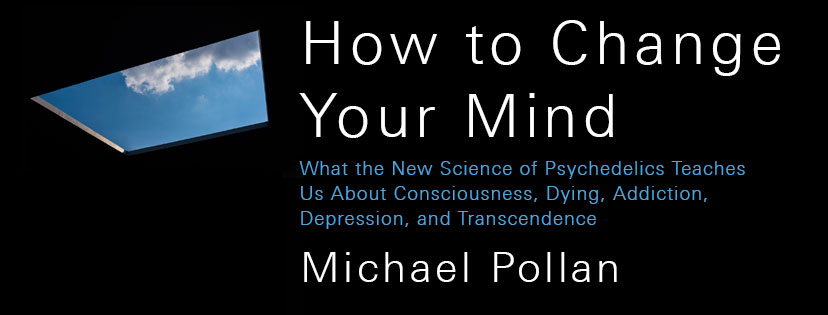Psychedelic drugs are arguably one of the most stigmatized substances on the globe. During the counterculture era of the 1960s and 70s, psychedelics were labeled as destructive and even life-threatening by governments and mainstream media. Despite the stigma, psychedelic research and use are making a comeback in the new millennium. Psychedelics are starting to be considered as helpful tools to anyone looking for self-betterment, especially those with mental illnesses. Psychedelic psychotherapy, under the supervision of a trained psychotherapist, can be beneficial for one’s mental health, especially those diagnosed with anxiety, depression and addiction.
Psychedelic psychotherapy involves using various amounts of psychedelic drugs in a controlled, clinical setting with trained psychotherapists. A typical psychedelic psychotherapy experience involves pre-trip talk-therapy or cognitive behavioral therapy, the physical trip itself and post-trip talk-therapy or CBT. During the drug-taking session, the patient is often laying down with eyeshades on while instrumental music plays through headphones. They are in a calming environment with one or two trained therapists in the room to guide them through the experience. The goal of psychedelic psychotherapy is to encourage ego-dissolution which provides a sense of reconnection with oneself, others and the environment. If the treatment is successful, clients should have a heightened sense of optimism, creativity, openness and imagination. While research into psychedelic psychotherapy is still relatively new, recent studies have shown the positive effects psychedelics can have on death anxiety, addiction and depression.
In 2016, New York University and John Hopkins University conducted a research study into how psilocybin, the psychoactive ingredient found in some mushroom species, can lessen death anxiety amongst those with terminal cancers. After enduring the psychedelic psychotherapy session, a majority of the cancer patients confronted their cancer and inevitable death during their psychedelic trip. Patients who partook in the trial lived happier existences in their final months than they had their whole lives. Eighty percent of cancer patients showed significant reductions in standard measures of anxiety and depression which endured for months after their psilocybin session.
When discussing addiction studies in his book, “How to Change Your Mind”, Michael Pollan states that “the psychedelic experience had given many [patients] an overview effect on the scenes of their own lives, making possible a shift in worldview and priorities that allowed them to let go of old habits.” One of the ground-breaking addiction studies was performed at John Hopkins University. Fifteen volunteers, known to be chronic cigarette smokers who wanted to quit, partook in CBT followed by several psilocybin sessions. Despite the sample group being small and not randomized, the results were still astounding. Six months after their psychedelic sessions, 80 percent of the volunteers were confirmed as abstinent; at the one-year mark, the percentage had fallen to 67 percent, which is still a better rate of success than currently available treatment. A notable anecdote is that the participants found no similarity between the addictive nature of cigarette smoking and their experiences taking psilocybin.
When looking at depression, the European Medicines Agency conducted a small study on the effects of psychedelics on mental illness at Imperial College. Six men and six women with treatment-resistant depression were given psilocybin and they all showed improvement in their symptoms, with two-thirds of them labelled as depression-free. Seven participants still showed substantial benefit after three months. The study was conducted again, this time with 20 volunteers and after six months, six remained in remission. In another research study, James J Rucker and associates explored psychedelics’ effects on unipolar mood disorders. Unipolar mood disorders are life-altering, as they are difficult to treat and they often result in high disability rates. Out of the 423 individuals with mood disorders, 79.2 percent showed improvement after, during a clinical trial session, they were given small amounts of psychedelics known as a micro-dose.
Robin Carhart-Harris, a head researcher in depression studies at the Imperial College, has developed the theory of the entropic brain, which may explain why psychedelics have such a positive impact on mental illnesses. He believes that “a happy brain is a supple and flexible brain […] depression, anxiety-obsession, and the cravings of addiction are how it feels to have a brain that has become excessively rigid in its pathways.” In other words, the brain can fall into a default mode, making it difficult to break behaviors or create new ways of thinking. Depression, anxiety and addiction lead to an overactive “default mode network,” as Carhart-Harris calls it. This theory believes that the default mode network is the site of our ego, rumination and life patterns. The consumption of psychedelics in a therapeutic setting allows for the default mode network to relax. Psychedelic therapy creates maximum plasticity in the brain; with proper guidance, new patterns of thought and behavior can be learned. Much more research needs to be done, but the theory of psychedelics physically changing the mind’s pathways to alleviate seemingly unbreakable mental illnesses is game-changing.
While psychedelics may not be a cure for everyone with mental illnesses, they may provide an opportunity to lessen symptoms with minimal side effects. Death anxiety, addiction, depression and mood disorders are highly difficult to treat, but psychedelics may be a better option for people diagnosed with these illnesses compared to traditional medications or treatments. If positive research continues, psychedelic substances may play an important role in combating mental illness in the near future. You may just walk out of your next psychiatric appointment with a prescription for psilocybin instead of Prozac.
Kayrin Brower is a Collegian contributor and can be reached at [email protected].



















